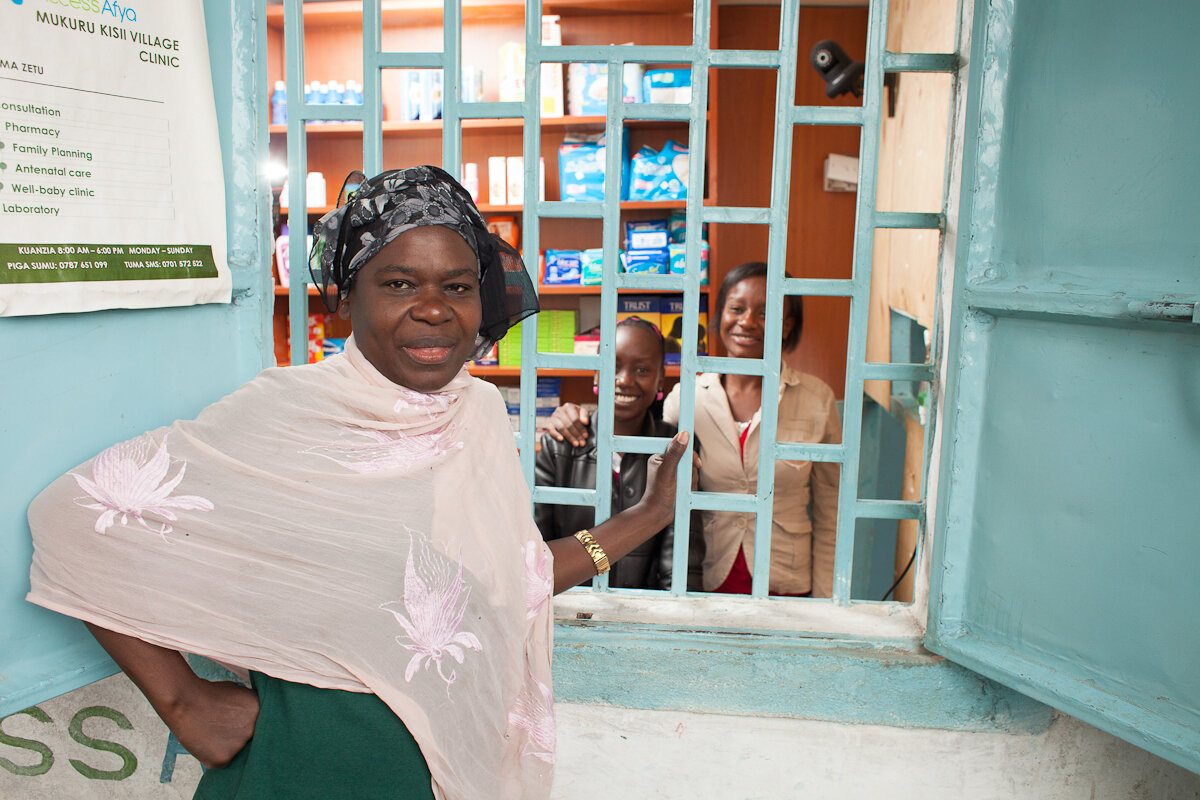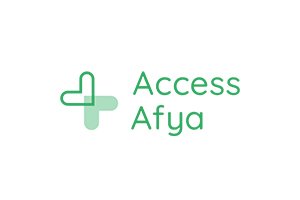Access Afya
Access Afya
Bringing affordable healthcare home.
BCTA MEMBERSHIP STATUS
Alumni
SECTOR
Health
HEADQUARTERS
Kenya
REGION OF INITIATIVE
Africa
SDG CONTRIBUTION
RELATED NEWS
CASE STUDIES
Since 2016, after becoming a BCtA alumni company, Access Afya has served over 300,000 people with quality primary healthcare. They are scaling through a franchise model that leverages their operating experience, brand and custom tech platform.
Some 15,000 residents of Nairobi's slums will gain access to quality healthcare following a commitment by Kenyan social enterprise Access Afya to the Business Call to Action (BCtA). The company has innovated a high-tech healthcare system that provides consistent, quality service and medication to low-income Kenyans in both micro-clinic and school settings.
Access Afya (Access Health in Swahili) was founded on the principles of customer engagement, planning for growth, working through trusted community partners and utilizing low-cost technologies to provide reliable, affordable healthcare in low-income urban areas.
Within Nairobi's slums, health is a serious concern: the majority of residents suffer from preventable diseases and diarrhea as a result of poor sanitation, a contaminated water, overcrowding and malnutrition. The limited healthcare options available to slum residents include informal pharmacies with sub-standard medications, and public facilities that lack proper supplies or qualified staff.
Previously, health clinics in these areas were inconvenient and unreliable. To tap into this market's demand for quality care, Access Afya developed the micro-clinic concept, which integrates quality clinical care into communities daily lives. This novel delivery model relies on small community spaces, rigorous quality and customer care, digital information systems, and critically community engagement and education to create demand for products and services.
Another of Access Afya's innovations is marketing healthcare directly to schools: The Healthy Schools program provides check-ups for children and teachers, health report cards, deworming, hand-washing education and nutrition counseling within schools. This program not only improves child health, it increases school attendance a powerful tool for lifting children out of poverty.
The company runs two community micro-clinics and a primary care program in two schools in the Mukuru slum of Nairobi, with plans to scale up quickly. As part of a growth strategy focused on integrated health and wellness, the company's Doorstep Health program is designed to maximize health outcomes in low-income communities while creating innovative service-based revenue streams for the company.
It has adapted the traditional clinic concept to areas where space is a challenge, education is limited and the trust of communities is crucial for partnerships with local leaders, which ensures positive working relationships.
The company's new phase of growth includes plans to expand to nine clinics and ten schools by the end of 2016, and develop an in-house comprehensive information management system for patient records to improve efficiency and reduce operating costs.
Access Afya also plans to pilot a membership plan for its primary healthcare centers, targeting 200 clients in the first year.
Access Afya is implementing a Healthy Schools program in schools in a slum in Nairobi, Kenya. The program aims to improve health of children and teachers. The Healthy Schools program will create a new model for improved health outcomes, using schools as a space to provide clean water, sanitation, nutrition and primary health care.






